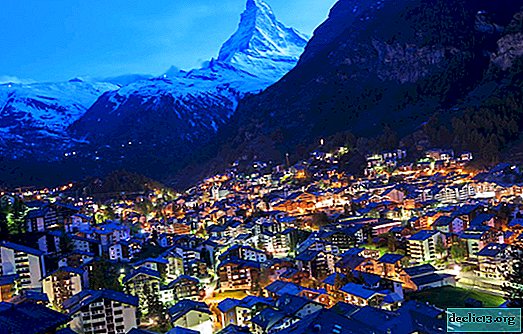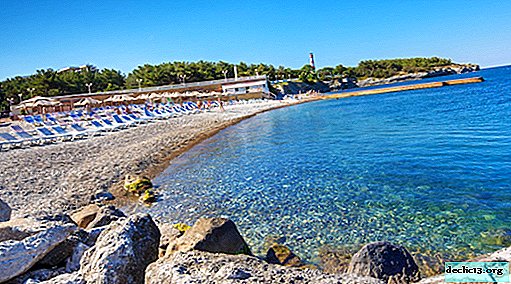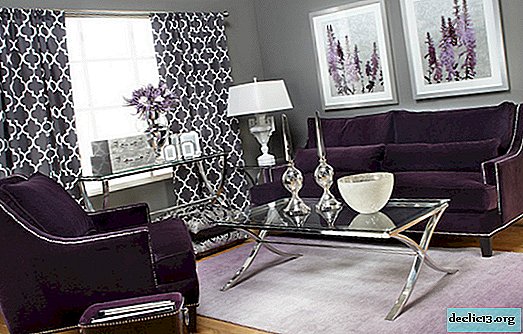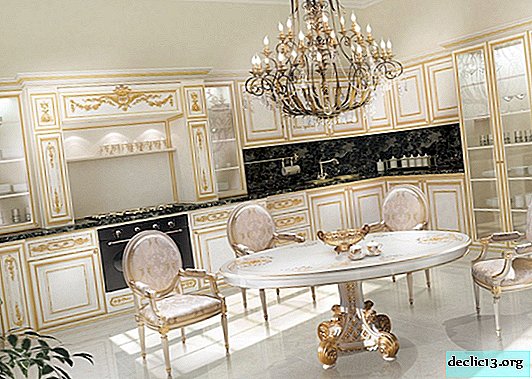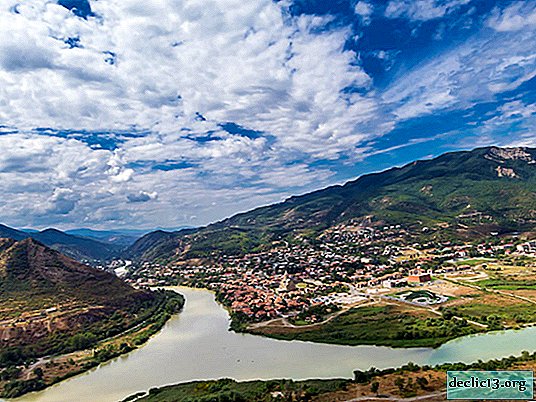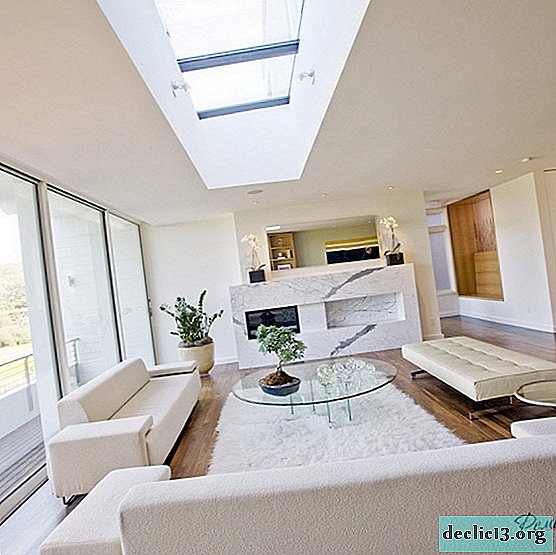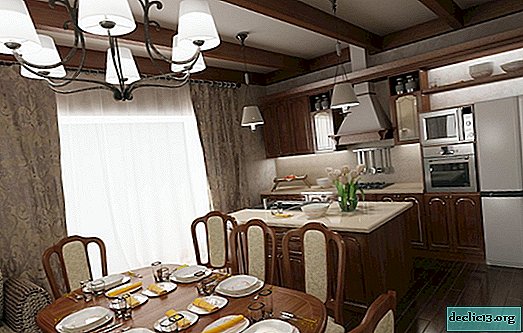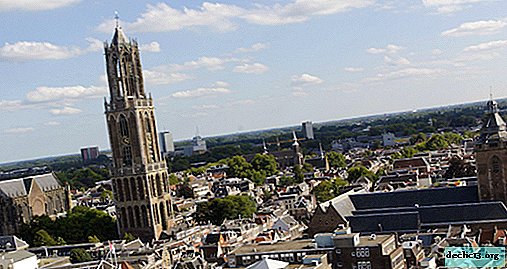Jumeirah Mosque in Dubai - an example of modern Islamic culture
Jumeirah is the largest mosque in Dubai and one of the largest religious buildings in the UAE. In a country where tourists who do not profess Islam are forbidden to visit mosques, it was the first shrine that opened the doors for non-Gentiles. This is a serious step towards strengthening existing relations between representatives of different religions, seeking cultural understanding and revealing the essence of Islam firsthand.
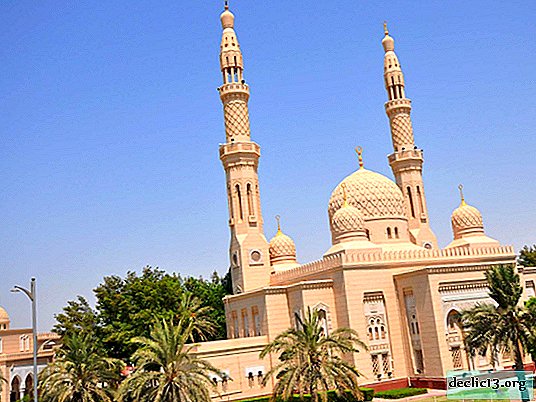
General information
The unusual and attractiveness of Dubai is that it is a harmonious combination of East and West, history and modernity, the brilliance of city attractions and the modesty of local Muslim residents. An example of such harmony was the Jumeirah Mosque in Dubai, which seats up to 1300 people. Every year, millions of people from all over the world cross its threshold, confirming the conviction of the Islamic clergy that an “open” mosque can become an effective platform for understanding the essence of religious teachings, passing the verses of the Koran by word of mouth, and attracting new followers.
The foundation of the mosque was laid in 1975, construction work was completed in 1979. The construction of rare pink sandstone organically fit into the overall picture of the city and deservedly received the title of "the most elegant religious building in the Emirates." Jumeirah became an adornment of a banknote of 500 dirhams and a favorite object for photographers. Especially good are the evening and night photos of the mosque in Dubai - due to the skillfully created artificial lighting, it looks mesmerizing.

Good to know! At the initiative of Sheikh Mohammed Ibn Rashid Al Maktoum - the Prime Minister of the UAE and the Emir of Dubai - the Center for Cultural Understanding was opened, one of the tasks of which was to organize excursions to Jumeirah for representatives of other religions, which led to a sharp increase in interest in the mosque.
Architecture and Interior
The most beautiful mosque in Dubai was erected using the latest technology, but according to the laws adopted in relation to temple buildings 10 centuries ago by the Fatimid Caliphate. Nevertheless, the massive building looks modern, impressing with its grandeur, glass stained-glass windows, a giant central dome decorated with gold stone and carvings, and two 70-meter minarets that can be seen even from other parts of Dubai. Jumeirah exudes a restrained sophistication - only upon closer examination can the luxurious details of the facade become noticeable.

The prayer hall of the White Mosque in Dubai was erected in a hypostyle - its columns and roof are connected by columns. Opposite the main entrance to the hall is the qibla - a wall that indicates the location of the holy Kaaba.

The Koran forbids the use of images of living beings inside mosques, therefore ornaments prevail in the design of the men's room for Jumeirah prayers, and the most delicate patterns in the female hall. In addition, you can admire the sophisticated Arabic calligraphy. The floor of the monastery is covered with a carpet on which intricate flowers "bloomed".
You might be interested in: Palm Jumeirah is the largest artificial island on the planet.Find out RATES or book any accommodation using this form
Visiting Rules and Tips
When visiting the Jumeirah mosque, guides dedicate the audience to the basics of Islam, Muslim culture and traditions. The tour lasts 1 hour and 15 minutes, conducted in English. In this mosque in Dubai, you can take photos and shoot videos. The main thing is not to aim camera lenses at praying people.

- While the guide says, try not to interrupt him or talk too loudly with each other. Time for answers to questions, as well as for photo and video shooting, is allocated before and after the tour.
- The Cultural Understanding Center invites you to visit Jumeirah Mosque any day, from Saturday to Thursday. The tour starts at 10:00. This is the most suitable moment between morning and dinner prayers.
- Arriving at the mosque 15 minutes before the tour, go to the reception desk to pay for it, and then go to the Majlis, which will offer you tea, coffee and desserts. Help yourself right here, do not take sweets with you - this is a sign of disrespect.
- To visit the mosque, you need to comply with the requirements for appearance: clothing should cover the shoulders and knees. Women should also cover their heads, hiding their hair. If you are dressed inappropriately, you will be given everything you need for free before entering Jumeirah.
- Before tourists find themselves in the prayer hall, they are shown a ritual bathing procedure. Everyone can take part in it, sequentially performing simple steps. They enter the hall after removing their shoes and leaving them in a specially provided locker.
- Do not bring children under 5 years old to the mosque, as they may disturb the silence of the sacred structure. Do not touch books on shelves.


Tourist note: The best Dubai hotels on the first line - an overview based on reviews.
Compare accommodation prices using this form
Practical information
 Dubai Zoo
Dubai ZooHow to get there. Jumeirah Mosque is next to Palm Strip Shopping Mall and the Dubai Zoo, in Jumeirah, on the eastern edge of Jumeirah Public Beach. High minarets are visible from afar, so it is impossible to pass by this monumental structure. The easiest way to get to it is by taxi. The nearest metro station, Al Jafiliya Station, is a 45-minute walk away, but you can catch buses 7, 12, C15 or F11 and get to the Iranian Hospital 2 stop.

- Address: Jumeirah Beach Road, Jumeria 1.
- Working hours: Saturday to Thursday, gathering near the main entrance to the mosque at 9:45. Entrance for non-Muslims is restricted to Ramadan and other great Muslim holidays.
- Cost of visit: 25 dirhams (this is about 6 euros, but only dirhams are accepted) for an adult (including refreshments inside Jumeirah) and free for children under 12 years old.
For details on the Dubai Metro, see this article.
The most hospitable mosque in Dubai and the Cultural Understanding Center operating under it invite everyone to attend Arabic courses and organize private visits to Jumeirah for those who for any reason cannot visit the mosque as part of a regular group.

